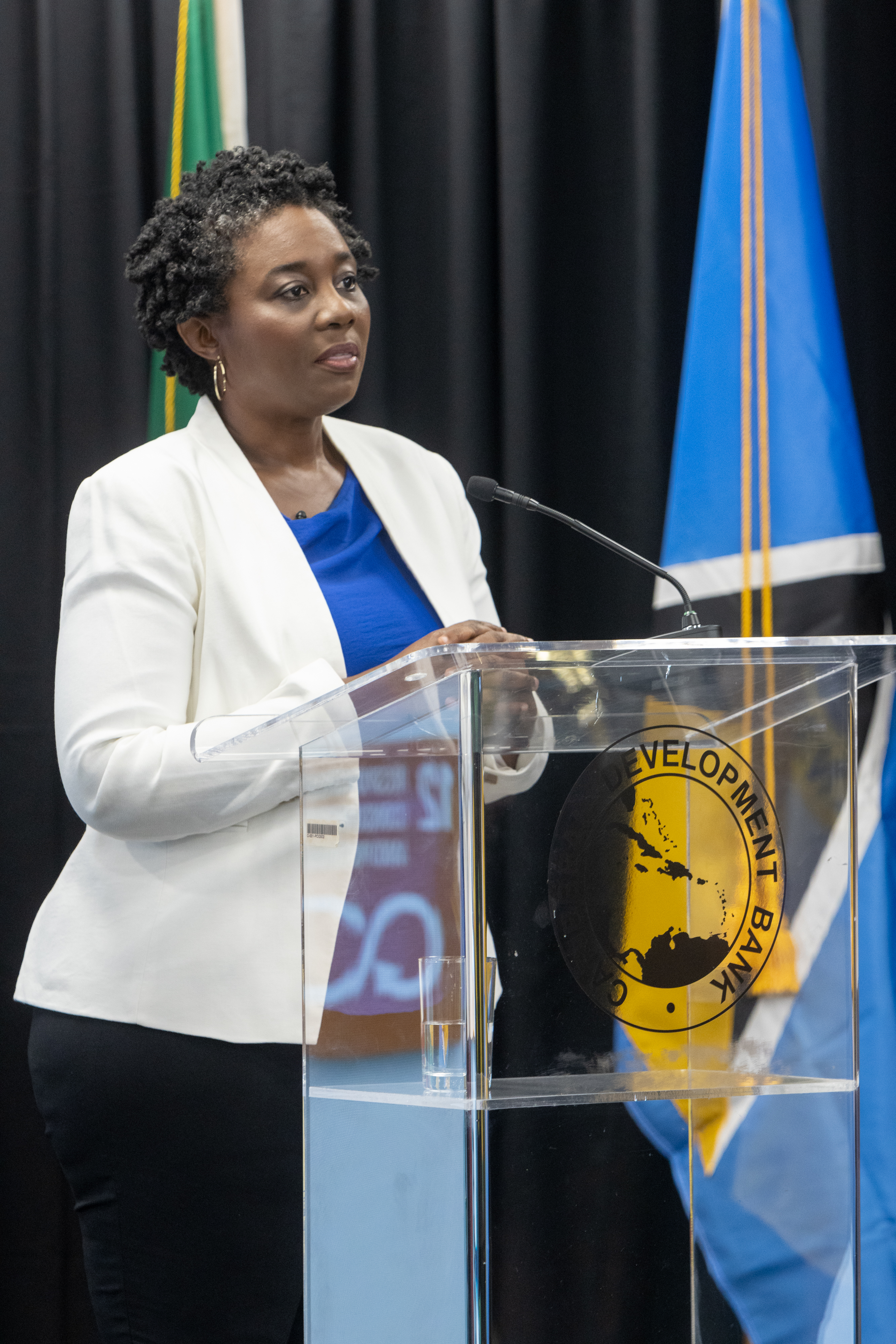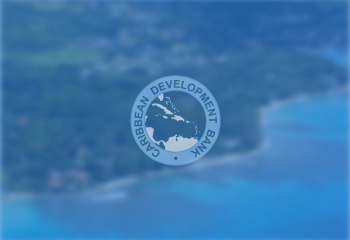CDB Gives Region Mixed Report Card on SDG Progress

While COVID-19 and global conflict has set back progress towards the Sustainable Development Goals (SDGs) in the Caribbean, all is not lost.
Deputy Director, Corporate Strategy at the Caribbean Development Bank (CDB), Ms. Ann-Marie Warner, states that despite the pandemic, the Region actually still saw appreciable progress on some critical goals including quality education (SDG 4) and climate action (SDG 13).
Speaking today at CDB’s Annual News Conference, Warner gave a report card on the region’s development progress, shared what areas had been most seriously affected by the economic contractions of the last nearly three years and quantified the impact of the Bank’s interventions in key areas.
“Not surprisingly, the main SDGs negatively impacted by the economic dislocation of the last three years were SDGs 1 (No Poverty) and 8 (Decent Work and Economic Growth),” said Warner.
She pointed to SDGs 14 (life below water), 15 (life on land), and 16 (peace, justice, and strong institutions) as also being “almost universally under threat of under achievement” throughout the Caribbean.
“It is clear that as a Region, we have much to do to achieve our SDG targets. Our progress was interrupted by the pandemic, and even now global events such as the war in Ukraine are limiting economic recovery. This means that BMCs will need to prioritise meeting their SDG targets when using the resources available,” advised Warner at the Bank’s conference, held in Barbados this morning.
However in addition to education and climate action, the region is still doing well on its efforts towards achieving Goal 12 (responsible consumption and production), and is making what she termed “slow but steady progress” on SDGs 6 (clean water and sanitation), 7 (affordable and clean energy), and 9 (industry, innovation, and infrastructure).
CDB-funded interventions played a major role despite the strictures which COVID-19 wrought on project implementation. In the area of education, Bank funding benefited 92,000 students in 2021 through improved classroom conditions, enhanced teacher competence or access to loan financing.
In terms of food security, CDB-funded projects and programmes saw over 3,200 stakeholders receiving training in improved production technology, and over 7,100 persons benefiting from improved agriculture, land management and climate smart agricultural practices.
Nearly 57,000 households across the region received access to improved sanitation and running water while 234,000 more people were able to use resilient roads and other infrastructure funded by CDB since 2020.
In addition, at the height of the COVID-19 pandemic in 2020 and 2021, CDB made USD $9 million in credit available to provide support for over 100 micro, small and medium enterprises (MSMEs).
However, the economist cautioned that if the Region is to catch back up and meet its targets, that it would need more than CDB’s support.
“The Region’s financing needs are enormous – much more than CDB alone can provide,” said Warner, adding:
“Therefore, there is a need to crowd-in resources, and in particular, concessional resources to help BMCs meet their gross financing needs and achieve their SDG targets.”
She counselled that countries in the Caribbean also need to do more to improve their implementation capacity and their measurement and statistics-gathering functions, efforts which CDB is already assisting with.
“CDB will support the BMCs in carrying out these activities effectively, through its drive towards better and targeted development decisions, which will include knowledge and data improvement and evidence-based expansion,” concluded the CDB official.

